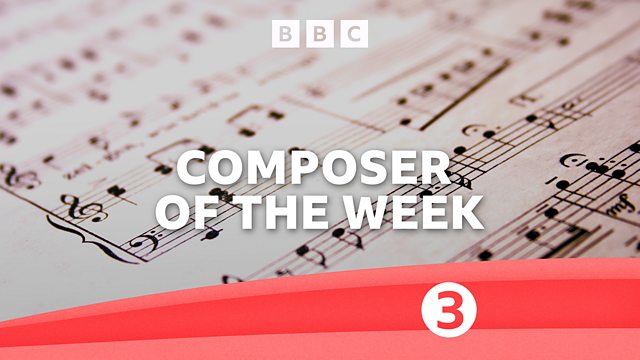
Music and Movement
Donald Macleod continues his focus on French composers, inspired by July's Tour de France cycle race. Today, he considers the role of dance in Rameau's theatrical spectacles.
Donald Macleod continues his focus on French composers, inspired by this month’s ‘Tour de France’ cycle race. Today he considers the role of dance in Rameau's theatrical spectacles.
"I have followed the theatre since the age of twelve", so said Rameau to a young composer who wrote to him for advice. It's an intriguing insight into a man who didn't produce his first opera until the age of fifty. Quite why it took him that long isn't clear. Up to that point he had been a church musician, following in his father's footsteps, holding a succession of posts mainly in the South of France. He also taught and established himself as a theoretician of some note. A brief, early sojourn in Paris, a mecca for any theatrical hopeful, ended abruptly when he was still in his twenties. It wasn't until he returned to Paris in 1723 that Rameau was able to start writing music for theatrical entertainments, at first for the popular Fairs, and then finally in 1733 for the Paris Opera. In the midst of constant cultural rows over the merits of French and Italian operatic style, Rameau flourished as a theatre composer. At one point he was so successful the management of the Paris Opera decreed no more than two of his works should be mounted per season, to allow other composers to get a look in! He completed his final opera, a masterpiece, Les Boréades in 1763, the year before he died at the age of eighty. Across the week Donald Macleod focuses on this remarkable period in Rameau's life, from the first of his theatrical works to his last.
As much as one third of Rameau's operas were made up of dance music, adding an originality to a format which had been established in the time of Louis XIV.
Les indes galantes
Danse du Grande Calumet de la Pais en rondeau aux sauvages
Orchestre de la Chapelle Harmonique
Valentin Tournet, direction
Les indes galantes
Air des polonais,
Air pour les amants et amantes
Air pour les esclaves africains
La Chapelle Harmonique
Valentin Tournet, director
Zaïs, Act 4, Sc 3 to 4
Entrée pour les peuples élementaires
Air pour les peuples élementaires
Témoins de mes feux
First aria en rondeau for the Shepherds and second aria for the Sylphes and the Sylphides
Julien Prégardien, tenor, Zaïs
Sandrine Piau, soprano, Zélidie
Les Talens Lyriques
Christophe Rousset, director
Anacréon, Sc 6
Air for the Bacchantes
Gavottes 1-2 for the Aegipans and the Bacchantes
Aria: When Love Inflames Our Hearts (Chloe)
Pantomime for Silenus and two Bacchae
Airs 1-2 for Silenus and two Bacchae
Anna Dennis, soprano, Chloé
Orchestra of the Age of Enlightenment
Jonathan Williams, conductor
Pygmalion, Sc 3
Quel prodige?
De mes maux, à jamais
Cyrille Dubois, tenor, Pygmalion
Céline Scheen, soprano, The Statue
Les Talens Lyriques
Christophe Rousset, director
Pygmalion, Sc 4
Les différents caractères de la danse
Sarabande for the Statue
Les Talens Lyriques
Christophe Rousset, director
Les fêtes de Polymnie, Prologue, Sc 3
Elevation de Trophée
Muses, à vos nobles efforts
Air majestueusement
Guerriers, dont la victoire
Première et deuxième gavotte
Que du nom du vainqueur (Mnemosyne, Le Chef des Arts, Chorus)
Reprise de l'overture
Emőke Baráth, soprano, Polymnie
Aurélia Legay, soprano, Mnemosyne
Mathias Vidal, tenor, Le Chef des Arts
Purcell Choir
Orfeo Orchestra
György Vasheygi, director
Last on
Music Played
-
![]()
Jean‐Philippe Rameau
Les Indes Galantes (Act 3, Sc 6: excerpt)
Orchestra: Orchestre De La Chapelle Harmonique. Director: Valentin Tournet.- Château de Versailles Spectacles : CVS031.
- Château de Versailles Spectacles.
-
![]()
Jean‐Philippe Rameau
Les Indes Galantes (Prologue: excerpt)
Orchestra: Orchestre De La Chapelle Harmonique. Director: Valentin Tournet.- Château de Versailles Spectacles : CVS031.
- Château de Versailles Spectacles.
-
![]()
Jean‐Philippe Rameau
Zais (Act 4, Sc 3-4)
Singer: Julien Pregardien. Singer: Sandrine Piau. Ensemble: Les Talens Lyriques. Director: Christophe Rousset.- APARTE : AP109.
- APARTE.
-
![]()
Jean‐Philippe Rameau
Anacreon (Scene 6)
Singer: Anna Dennis. Orchestra: Orchestra of the Age of Enlightenment. Conductor: Jonathan Williams.- SIGNUM : SIGCD402.
- Signum.
-
![]()
Jean‐Philippe Rameau
Pygmalion (Scene 3)
Singer: Cyrille Dubois. Singer: Céline Scheen. Ensemble: Les Talens Lyriques. Director: Christophe Rousset.- Aparté : AP155.
- Aparté.
-
![]()
Jean‐Philippe Rameau
Pygmalion (Scene 4)
Ensemble: Les Talens Lyriques. Director: Christophe Rousset.- Aparté : AP155.
- Aparté.
-
![]()
Jean‐Philippe Rameau
Les Fetes de Polymnie (Prologue, Sc 3)
Singer: Emőke Baráth. Singer: Aurélia Legay. Singer: Mathias Vidal. Choir: Purcell Choir. Orchestra: Orfeo Orchestra. Director: György Vashegyi.- GLOSSA : GCD-923502.
- GLOSSA.
Broadcast
- Thu 7 Jul 2022 12:00BBC Radio 3








